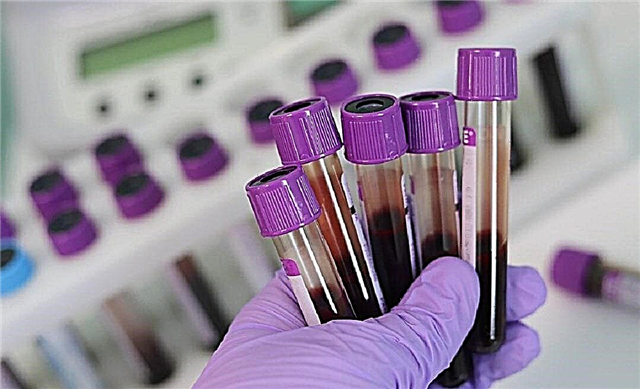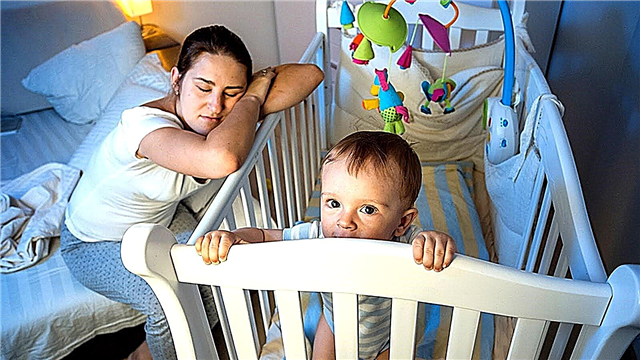
Every mother at least once in her life faced such a problem as the occurrence of diarrhea in a child. This condition is very unfavorable for the baby's body. Due to the severe loss of fluid, the child is deprived of many salts and trace elements necessary for life. For babies who have diarrhea, a special diet is required.
Why does diarrhea occur in children?
The most common cause of diarrhea in a child is viral diarrhea. Frequent bowel movements are not a disease. This is just one of the manifestations of many diseases. It can often be a symptom of an imbalance in the beneficial intestinal microflora - dysbiosis. This problem can also arise as a result of exacerbation of chronic diseases of the gastrointestinal tract (for example, colitis or enteritis).


Acute intestinal infections during their development can also cause diarrhea in a child. Often children who are 2-3 years old get sick this way. They can become infected in kindergarten or nursery. In other words, these infections are called "dirty hand diseases". If a child has poor hygiene, he or she can easily pick up an infection after playing outside. Many young children forget to wash their hands. Sitting down at the table, they carry the infection into the body and quickly fall ill.
Food poisoning can be the cause of infection. It can be caused by various bacteria and viruses. Chemical poisoning occurs when a child eats or drinks something wrong. Often, curiosity babies can taste grandma's pills or mother's cream. This is very dangerous, in such cases, the obligatory help of doctors is required!

Very often, for all the various reasons that led to diseases, babies may have diarrhea. This is the body's defensive response. He tries to get rid of dangerous toxins that can cause harm.
Why is it dangerous?
Any loose stool carries a lot of liquid with it. After a while, the body lacks it. This is how the symptoms of dehydration appear. These include:
- intense thirst
- dry lips;
- sagging skin;
- severe weakness.


A dehydrated child looks pale. He has practically no strength. He tries to rest more, wants to sleep. If symptoms of intoxication join the signs of dehydration, the child begins to act up. His head hurts badly, his body temperature rises.
With diarrhea, children are lethargic, do not bother with toys. They usually just lie in the crib. Sometimes they can compress the legs or lie on one side. More often the child lies on the “healthy” side, as turning over to the “sick” side gives him severe pain.

Defecation for mild disorders is carried out up to 3-4 times a day, in severe cases - more than 10-12 times. Such loss of fluid along with electrolytes and vitamins is a heavy blow for a small organism. If timely treatment is not started, the baby may lose consciousness or fall into a coma.
How to feed the baby?
With an exacerbation of diarrhea, the mother should call the local pediatrician. The doctor will examine the child and determine the reason for the deterioration of his condition.

Diarrhea in infants is a very dangerous sign. A sick baby should be carefully examined.
Diarrhea often occurs after the introduction of complementary foods. This may indicate intolerance to specific products. This is how celiac disease can manifest itself: individual gluten intolerance. It is part of many cereals and flour products.
The ideal food for a baby is breast milk. In no case should you give up breastfeeding. It forms the child's passive immunity. Insufficient intake of nutrients is bad for the growth and development of the baby. With diarrhea, mom should also analyze her nutrition. It is possible that the day before she ate some product that provoked such a reaction in the baby.

If you have diarrhea in a breastfed baby, you should reduce the amount of milk you serve at a time. There is also a second method. In this case, the number of feedings per day is reduced by 20%. You can drink clean boiled water for your child. It is not worth replenishing the fluid deficiency in the baby's body with cow's milk.
Meals for children over 1 year old
A therapeutic diet for babies, whose age is 1 year or more, should be compiled according to the following principles:
- Divided into several meals daily menu (excluding harmful products)... You need to feed your baby at the same time, excluding omissions.
- Mandatory inclusion in the diet of various cereals. Porridge has excellent anti-inflammatory properties. They are very nutritious, fill you quickly, and leave you feeling full for a long time. Choose ground flakes rather than whole grains. They are much easier to digest, providing the child's body with energy. You can safely choose buckwheat, oat and rice flakes. They should be boiled in water, without milk.
- After 3-4 days, you can expand the diet. Vegetable mashed potatoes or heavily boiled and chopped vegetables are added. Mashed potatoes or mashed carrots can be a great side dish. It is better to give up beets for a while. It is able to activate intestinal motility, increasing diarrhea.
- The menu must include protein products. For babies, you can cook meatballs or meatballs. It is better to do them steamed or in a slow cooker. Creamy or tomato sauce is prohibited. They can provoke increased diarrhea, as well as heartburn in a child. Choose meat products that are quickly digested in the child's body. It can be a turkey as well as a rabbit. Regular chicken is perfect.
- Drinking regimen is probably the most important point that must always be observed. Losing a huge amount of fluid, the baby's body is quickly depleted. You need to constantly replenish the water balance. Let your baby drink every hour. This will significantly reduce the symptoms of dehydration.
- Avoid all foods that can worsen diarrhea. Watch carefully what your child eats. Usually during this period children refuse to eat. They can be capricious, beg for "sweets". You shouldn't give in to provocations! Any error in the therapeutic diet can significantly worsen the condition of the baby and hinder his recovery.


Foods that are taboo on the menu
In the first hours after the onset of diarrhea, you do not need to give your child foods that activate the intestines. It can make loose stools and make your baby worse.... Foods to avoid for diarrhea in children include:
- Cabbage in any form (boiled, stewed)... Sauerkraut is also strictly prohibited.
- Legumes. As a source of vegetable protein, they strongly provoke gas formation in the intestines. The inflamed wall is stretched, which greatly aggravates the pain syndrome. The baby starts to cry. The belly is distended, any touch to it causes pain.
- Carbonated sweet drinks. The carbon dioxide contained in them has a negative effect on the walls of the organs of the gastrointestinal tract. In contact with the delicate wall of the stomach, he greatly stretches and damages it.
- Mushrooms. Usually mothers add them to soup. Children with diarrhea should not eat mushrooms! There is too much chitin in them. This substance is not absorbed and passes through the intestines. Mushrooms increase peristatics, which significantly worsens the situation.
- Croutons, chips, snacks. They contain a huge amount of artificial additives and spices.
- Milk. The consumption of undiluted milk provokes an increased movement of food through the intestines. Such a product significantly enhances all fermentation reactions.
- Fatty, smoked and fried foods. They are poorly absorbed by the body and cause a feeling of heaviness. After the use of such products in the intestine, putrefaction processes intensify.
- Tomatoes. They are high in acid. They can adversely affect the stomach, exacerbate gastritis. It also makes diarrhea worse.

What drinks can you give to children to stop diarrhea?
During diarrhea, it is very important to ensure adequate fluid replacement. Babies should be drunk with boiled water cooled to room temperature.
For older children, different drinks can be used. Fluid deficiency is well compensated by:
- Weak black tea. The tannins contained in the drink have an inhibitory effect, stopping diarrhea. This tea has a strengthening effect.
- Rosehip decoction. It contains a significant amount of vitamin C. This drink compensates for part of the microelements excreted from the body. It contributes to the rapid recovery and strengthening of the child's immunity.
- Chamomile tea. It is an excellent antiseptic for any diarrhea. This tea helps to destroy the bacteria that cause diarrhea.
- Dried fruits compote. They contain a large amount of various trace elements and vitamins: potassium, magnesium, ascorbic acid, silicon. These substances help to stimulate the body's defenses, fight disease, and replenish useful minerals.
- Fruit drink from different berries. You can choose any options. Blueberry juice contains a huge amount of vitamin A, it helps to cope well with diarrhea. Blueberries have a firming effect. This is a delicious and healthy drink.
- Mineral healing water. If you are going to give it to a child, first release the gas from it. Drinking mineral water is a healing procedure. Drinking it in bottles is strictly prohibited. Small children under 5 years of age are prescribed up to ¼ glass 3 times a day (before meals). Before choosing bottled mineral water, you should consult your doctor.
It is important to note that all ready-made packaged juices are not the best choice for diarrhea. They contain additional chemical additives that can worsen diarrhea and are high in sugar. The introduction of juices should be started from 2-3 days after the strengthening of loose stools. Choose drinks that are astringent. Better to give preference to pear or apple juice made from green apples. They are hypoallergenic and do not have a strong activating effect on intestinal motility.
It is better to refuse coffee and cocoa during an exacerbation. These are too aggressive drinks for an irritated stomach. They are often prepared with milk. Such drinks can provoke the secretion of bile and only increase inflammation.

It is impossible to overestimate the importance of diet and drinking regimen during diarrhea treatment. To restore the baby's strength and normalize the stool is possible only with the help of proper nutrition. After stabilization of the condition, you should still undergo a full examination (especially if you have had diarrhea before). Sometimes, behind the mask of diarrhea, dangerous chronic bowel diseases can be hidden.

For tips on diarrhea diet, see the video below.
You can learn more about intestinal infections by watching the transmission of Dr. Komarovsky.



